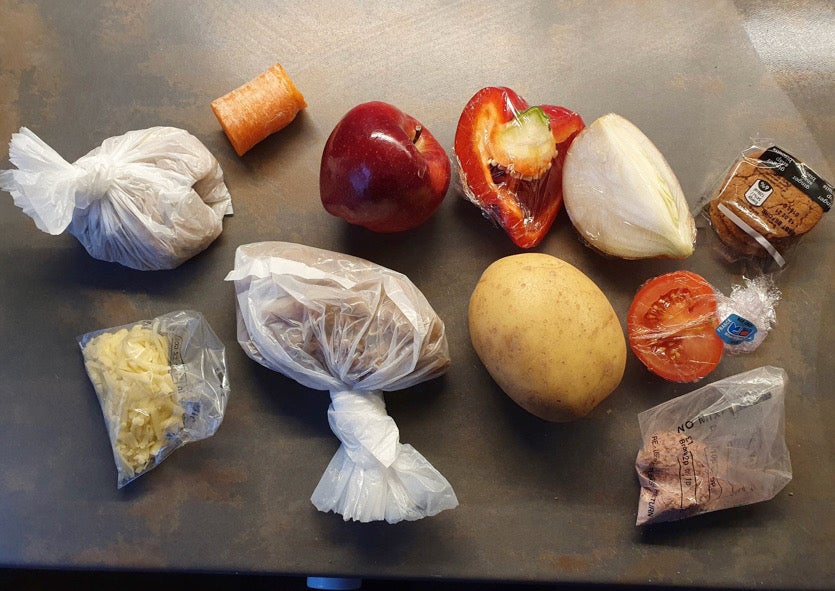‘My kids have gone hungry’: The parents struggling through the pandemic with free school meals parcels
‘People were asking what my kids wanted for Christmas and I just said a decent meal,’ one mother tells Tom Batchelor


Your support helps us to tell the story
From reproductive rights to climate change to Big Tech, The Independent is on the ground when the story is developing. Whether it's investigating the financials of Elon Musk's pro-Trump PAC or producing our latest documentary, 'The A Word', which shines a light on the American women fighting for reproductive rights, we know how important it is to parse out the facts from the messaging.
At such a critical moment in US history, we need reporters on the ground. Your donation allows us to keep sending journalists to speak to both sides of the story.
The Independent is trusted by Americans across the entire political spectrum. And unlike many other quality news outlets, we choose not to lock Americans out of our reporting and analysis with paywalls. We believe quality journalism should be available to everyone, paid for by those who can afford it.
Your support makes all the difference.For Mizz Sayce and dozens more parents like her, skipping meals and rationing even basic supplies are realities of surviving the Covid crisis.
The 41-year-old, from Kidsgrove in Staffordshire, was one of dozens who shared photos of the food parcels they had received as part of the government’s free school meals programme.
Her box contained just five potatoes, a loaf of bread, two packets of crisps, butter, a handful of fruit and vegetables and some biscuits. That was intended to feed her two 12-year-olds for 10 meals.
“My kids have gone hungry,” she tells The Independent. “Sometimes you can go three or four weeks without a box, sometimes it’s just a few days. We have had to stretch everything – we even have to ration out crisps. There are 21 in each bag and we share them out.”
Sayce used to receive vouchers from the government so that she could buy her own supplies, but now receives boxes of food.
She says they were often of poor quality, with dried goods that “tasted like cardboard” and apples and bananas that were “so soft you could squish them with your hands”.
Her story – one which is repeated across the country – has forced the government to launch an investigation after parents shared images online showing their free school meal provisions.
Footballer Marcus Rashford last year successfully campaigned to have the government extend free meals over the school holidays.
On Monday evening the issue was back under the spotlight when Rashford began tweeting pictures of food parcels being shared on social media.
“3 days of food for 1 family... Just not good enough,” he captioned one photograph.
“Then imagine we expect the children to engage in learning from home.
“Not to mention the parents who, at times, have to teach them who probably haven’t eaten at all so their children can... We MUST do better.”
Responding to the outrage, the prime minister’s official spokesperson said on Tuesday: “It is clear that the contents of these food parcels are completely unacceptable.
“The Department for Education is looking into this urgently and the minister for children, Vicky Ford, is speaking to the company responsible.
“They will be making clear that boxes like this should not be given to families.”
Earlier in the day, Sir Keir Starmer, the Labour leader, described the situation as a disgrace and said the parcels were woefully inadequate, while food writer Jack Monroe said the contents of the parcels amounted to “offensively meagre scraps”.
Sayce says she had relied on supermarket reward points “just to feed us through Christmas”, adding: “People were asking what my kids wanted for Christmas and I just said a decent meal.”
Another parent, from Poole in Dorset, who asked not to be named, said she was provided with a food box that contained a small selection of fresh vegetables including a “stub” of carrot, half a pepper and half a tomato.
“It was really sad receiving it as it made me feel like a beggar,” she said. “Luckily the school was just as disgusted and within the same day put out an email saying they are very quickly swapping to vouchers.”
Naomi Willis, co-founder of the community website Skint Dad, says in some areas the free school meals programme is “failing children”.
She says the system has left parents and children having to walk to school to collect the food parcels on a daily basis, often in between lessons, undermining the “stay at home” message during the pandemic.
“Another problem for the parents is not knowing what is going to happen and what time frame the government is working to,” she says. “There is no way that they can plan.”
Doctors at the Royal College of Paediatrics and Child Health are calling for a review of food packages delivered to pupils eligible for free school meals.
Department for Education (DfE) guidance says schools should work with their catering team or food provider to provide parcels to eligible free school meal children at home during the lockdown.
The guidance, updated on Friday, adds that schools can also provide meals by handing out vouchers for a local shop or supermarket, or by using the DfE’s national voucher scheme, “which will reopen shortly”.
Chartwells, one of the companies providing food parcels, said its “hampers” were put together last week based on the cost of a free school meal allowance of £2.34 per pupil per day.
The company said it was working to establish whether the photos being shared were of food it had supplied.
A spokesperson said the company had “worked hard to produce food hampers at incredibly short notice during these challenging times” and that the food parcels “follow the Department for Education specifications”.
The spokesperson added: “In this instance, the image on Twitter falls short of our hamper specification and we are keen to investigate with the relevant school so we can address any operational issues that may have arisen.”
The Department for Education tweeted: “We have clear guidelines and standards for food parcels, which we expect to be followed. Parcels should be nutritious and contain a varied range of food.”
The government did not respond to The Independent’s request for further comment.

Join our commenting forum
Join thought-provoking conversations, follow other Independent readers and see their replies
Comments